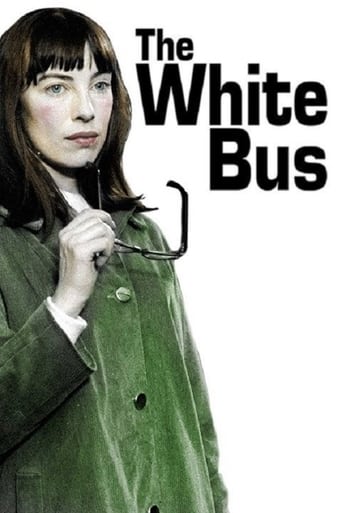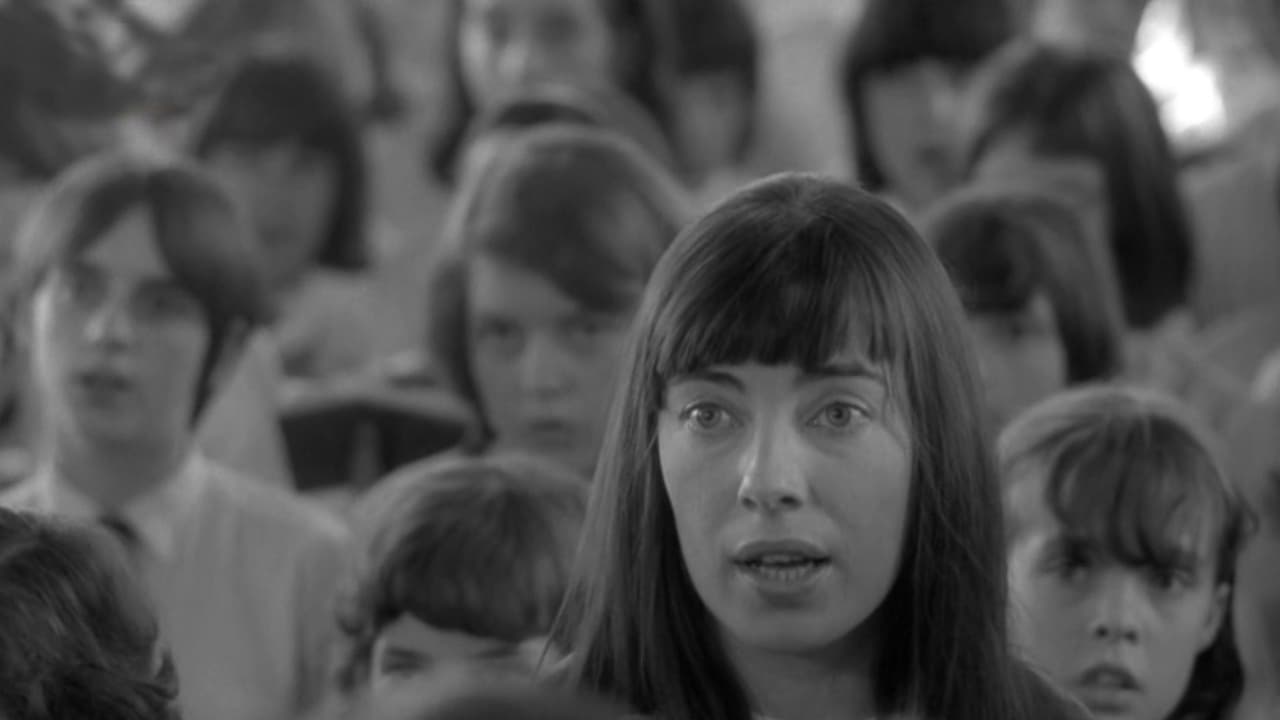jzappa
When I think about The White Bus, I think about how thoughts and ambiance spontaneously go on, because they do here just as they do in a person's mind. When I caught myself, during and after watching it, trying to pigeonhole whether it was supposed to be a hallucination, pure free association or a stream of consciousness, I hearkened back to my first experience seeing a movie directed by Lindsay Anderson, If
., which was a more realistic story, yes, but had a dreamlike lack of reason or cohesion for its stylistic and visual changeovers. Likewise, The White Bus is just a chain of imagery. But what makes it a consistent piece? Somehow, it is. Because I followed it and enjoyed it.Maybe that goes to show that "invisible style," the avoidance of indulgent cinematography because a movie exposing itself diverts from the story, is not limited to the traditional studio era. The furthest extremities of avant-garde filmmaking can still be engrossing on that very level despite being so exuberantly stylized and even seemingly fragmentary. Regardless, The White Bus, like If
., is a blurring of various lines.Lindsay Anderson and Shelagh Delaney's The White Bus is a dreamlike film about a secretary who takes a bizarre trip, part of which is set on the eponymous means of transportation. The anonymous woman has an apparently monotonous life, which is disrupted by episodic departures of imagination featuring suicide, recreations of paintings, and slices of meat that abruptly run blood-red. Flanked by these visions are the minutiae of her real life, particularly as she starts a passage home to pop in on her family. She comes across an eclectic assortment of people, an adolescent extremely annoyed that his rugby team lost, a young man who proposes marriage, a lord mayor who takes pleasure in feeling her leg, and more as she traverses to sites reaching from a community center and a public library to a natural history museum and a civil defense display. Throughout, the girl upholds a pretense of apathy or disregard, even when proceedings grow fairly unreal, as when all of her itinerant companions become human dummies in the course of the civil defense exercise. Ultimately, she enters a restaurant and eats dinner while the owners stack chairs around her, shrouding her from view and grumbling about the boundless movement of work.So we leave having experienced the incessant tide of observation, feelings, mindset and recollections in an uninterrupted, even rambling manner of visual soliloquy. But so many transitions and scenes lack outside motivation, and yet somehow have the characteristics of real experiences in that they're lucid, significant and seen in the objective outside world. Is that not hallucination? Could they be real perceptions that are delusional, accurately seen things and people given extra implications? People are frequently at odds with their necessity to be secure with themselves and their suspicions of and resistance to change and self-exposure, intentional or not. There is no linear premeditation, just spontaneous bounds and connections that potentially bring about new individual revelations and values: the sense of overtone and suggestion are a sort of thinking id. That's what I admire about The White Bus.
Kris Kochanski
I saw this film for the first time about a week ago. Honestly, I didn't understand most of it. If given the chance to watch it again, I would, mostly to try to figure it out. It gave my husband the creeps.The film is done with high quality and is masterful in setting moods. It runs like a nightmare, though. Situations in it are surreal, otherworldly, loud and then suddenly quiet. It seems to me that "The White Bus" is contrasting male and female roles in the workplace and why should it be wrong for women to take on some of the jobs that men are performing. When the Girl first joins the eerie tour, she sits on the bottom of the bus but soon after moves to the top of it, perhaps as an allegory for rising up in the world, freeing herself from the restraints of roles that placed squarely on each gender. At one point, when the Lord Mayor places his hand on the Girl's knee, it is a sexist gesture and the Girl frees herself by demanding that he remove his hand and then moving to the front of the bus.I give it five out of ten, simply because I don't understand it, although the filming of it was high quality work. If put into the context of all three of the films for which it was intended to be seen, then perhaps I would understand it better.
sbwords
A strange, moody, yet captivating film that captures the atmosphere at a certain time in Britain. I love the images of the terrace houses, the back alleyways and bombed out areas. I grew up just off Holderness Road in Hull and the images gave me a flashback to that time. The air is heavy with coal smoke, the roads have few cars and kids are playing in the streets, whilst the people all look gray like in a Lowry painting. The silent parts are the best as the images speak for themselves.The humour is nicely understated. My particular favorite is the scene with the lift and the security guard.I not sure what messages the film is seeking to convey, but as an observation piece it is superb.
runamokprods
Interesting 47 minute short from a Shelagh Delaney short story. A girl quits her dull job, and goes on a surrealistic bus tour of a dilapidated Manchester. Along for the ride are a strange mix, including a lascivious vicar, lord mayor (Arthur Lowe, always great), etc. Many of the techniques that became part of 'If' and 'O Lucky Man' first show up here.(e.g. mixing color and B+W). It also follows 'O Lucky Man' in being a surreal journey of a somewhat passive, young lead character traveling through a world where they have little power. Enigmatic, sure, but it's interesting and entertaining in a Brechtian/Anderson sort of dark humored politically satirical way. Cleary it's making fun of the pathetic nature of modern society and our desperate need to justify all the glories of 'progress that really sap our humanity. Some terrific and haunting images. Anthony Hopkins appears very briefly singing in German (?!?).


 AD
AD



